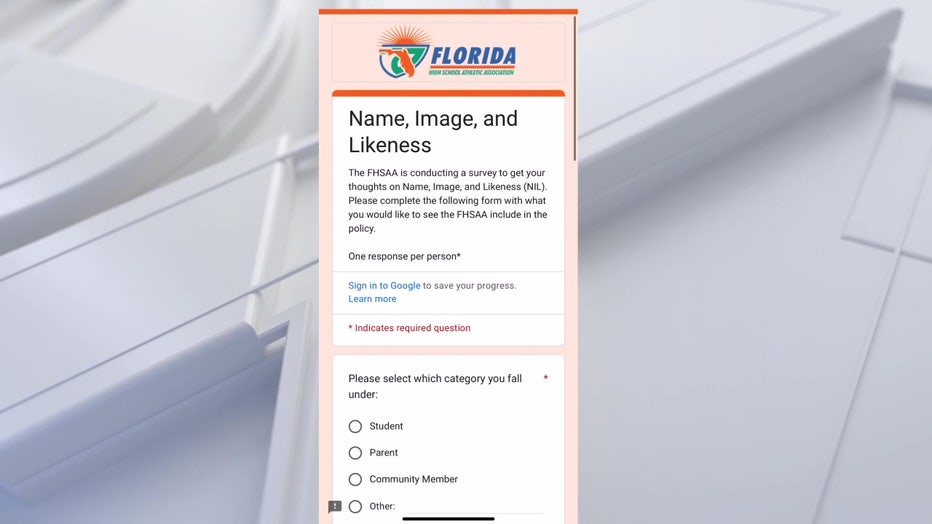FHSAA seeks input on allowing name, image, likeness deals for high school athletes
Florida considering endorsement deals for high school athletes
Florida is one of 16 states across the country that does not permit NIL deals for student athletes, but that could change soon. Matthew McClellan reports.
TAMPA, Fla. - The Florida High School Athletic Association is asking the public for input on allowing NIL deals for high school athletes in the state.
The move would allow athletes to earn money for their name, image and likeness while competing at the high school level, similar to decisions in recent years regarding college-level athletics.
The survey, which is available here, asks what participants would like to see the FHSAA include in a future name, image and likeness policy. After selecting which school you or your child attend, the form then asks whether NIL should be allowed at the high school level in Florida.

Florida High School Athletic Association NIL survey.
The questionnaire also wants to know whether there should be a cap on yearly earnings for student athletes, and if so, what should that amount be? The survey also asks what brands or companies should be allowed to offer NIL deals to high school athletes.
READ: DeSantis signs bill allowing student-athlete compensation
In October, the Georgia High School Association cleared the way for student athletes to monetize their name, image, and likeness without losing amateur status.
The rules in that state say NIL deals cannot be based on athletic performance or achievement. Deals also cannot be used as an incentive to play at a specific school or be provided by a school or its representatives.

File: Student athletes
The survey has sparked widespread online debate among coaches, parents and students.
A Facebook user commented, "NIL and the portal is killing college football. Why would you want to destroy high school football the same way?"
"We already allow kids to transfer at will and 33 other states already allow NIL deals for HS athletes," countered another Facebook commenter. "We will lose top talent to other states."
At the high school level, Florida is one of only 16 states that do not currently permit NIL deals. The FHSAA survey ends by asking whether participants believe that allowing NIL deals would affect their school's athletic or academic programs, with an option to list any concerns about the topic.

